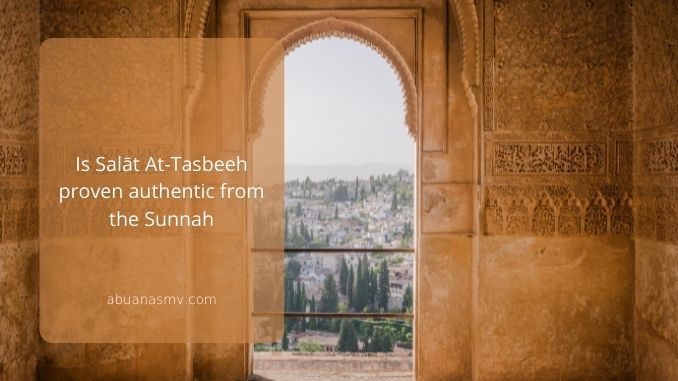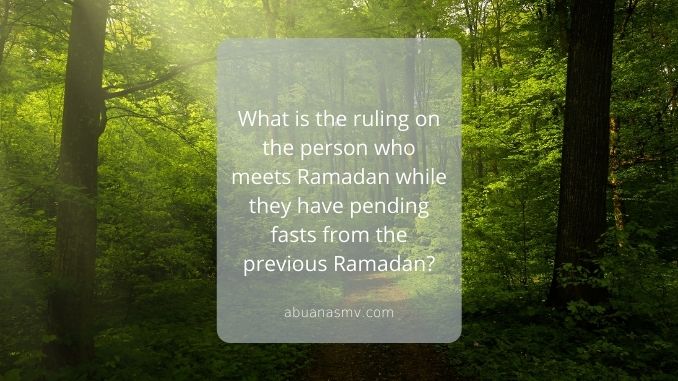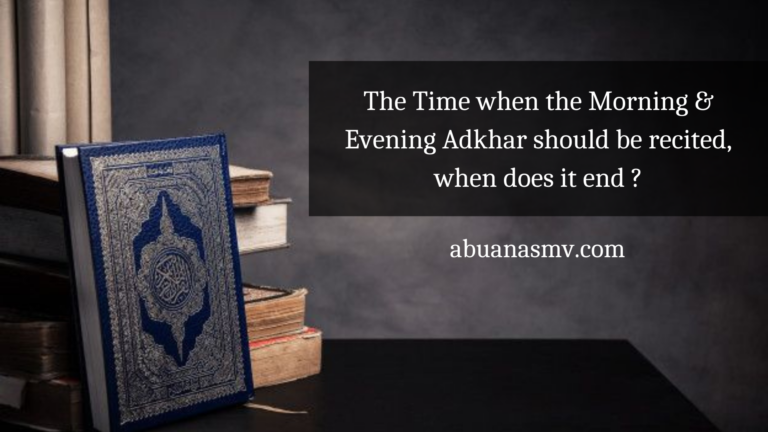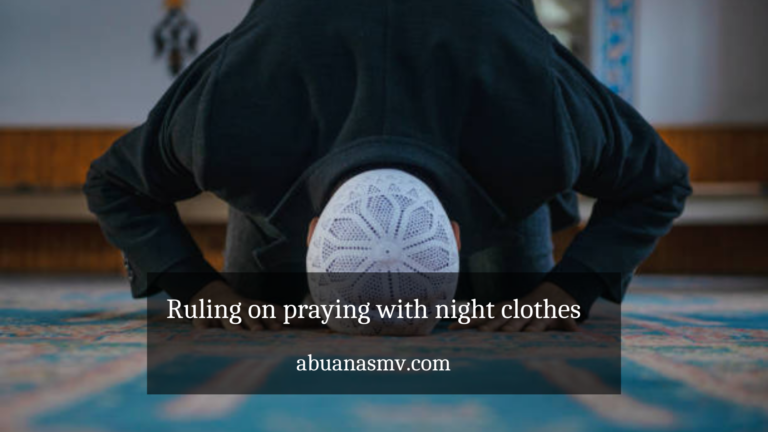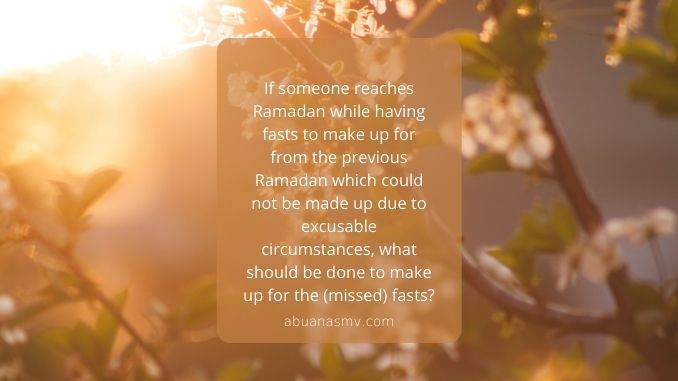Is Salāt At-Tasbeeh proven authentic from the Sunnah
بسم الله الرحمن الرحيم ، الحمد لله رب العالمين، و الصلاة و السلام على رسول الله -صلوات الله وسلامه عليه- وعلى آله و صحبه أجمعين.
All praise is due to Allah, Lord of all creation, and may the peace and blessings of Allah be upon the Prophet Muhammad, his family and all his Companions
The Salāt At-Tasbeeh is a prayer over which many scholars differ in their opinions. The biggest reason for this is the differing over the authenticity of the narrations concerning this prayer
The statements from the scholars stating that this prayer is not authentic and that it is not from the Sunnah are numerous and the reasons for this are many A 1) The fact that it has been narrated about this prayer, that the one who performs it will have all his sins (committed in past) forgiven
It should be known that this is not a reward achieved by performing the obligatory prayers, fasting in Ramadan, and performing Hajj and Umrah
Meaning that this is not a reward given even for performing the obligatory actions that are mandatory in Islam such as the five daily prayers, fasting in Ramadan and Hajj. Therefore, it is not possible that such a reward can be achieved by performing a Sunnah prayer
Muslim reports from Abu Hurairah, (may Allah be pleased with him) who narrated that the Prophet (salallāhu ‘alaihi wasallam) said
(الصَّلَوَاتُ الخَمْسَ، والجُمْعَة إِلى الجُمْعَة، وَرَمَضَانَ إلى رَمَضَانَ، مُكفِّرَاتٌ مَا بَيْنَهُنَّ إِذاَ اجْتُنِبَتْ الكَبَائِر)
The five daily prayers, and the Friday prayer to the next Friday prayer to the other, and the fasting of one Ramadan to the next Ramadan are atonements as long as major sins are shunned
This Hadith indicates that the major sins will indeed be erased only by repentance. Repenting is the legislated act to erase major sins
to the Prophet (salallāhu ‘alaihi wasallam) regarding the prayer are weak and inauthenticThis evidence proves that this prayer is not an established prayer (from the Sunnah), and that the aḥādīth ascribed 2.The narrations regarding this prayer have many discrepancies. In this regard, some of the statements of scholars that express these discrepancies are mentioned herein
Al-Imam Sheikh-ul Islam ibn Taymiyyah (rahimahullah) said
The hadith that has been narrated regarding the Tasbeeh prayer is a false hadith. (He further said), the manner of performing this prayer does not follow the manner of performing prayer as described by the Prophet (salallāhu ‘alaihi wasallam). The fact that it states that, in the prayer, the Prophet (salallāhu ‘alaihi wasallam) remains seated for a long time after the second Sajdah, contradicts the attributes of (the established) prayer that has been transmitted from the Prophet (salallāhu ‘alaihi wasallam). This action contradicts the principles of prayer. So, it is not permissible to authenticate such ḥadith. If we contemplate over the principles concerning knowledge, it becomes clear that all such hadith are fabrications attributed to the Prophet (salallāhu ‘alaihi wasallam). And this becomes clear from the consensus of everyone who has comprehended the religion.”
What is indicated in this statement is that the way of performing this prayer contradicts the regulations of prayer as described and transmitted by Prophet (salallāhu ‘alaihi wasallam). Therefore, in its regulations, and other than that this prayer cannot be a legislated prayer
From the biggest scholars of this era, Al-Imam Ibn Uthaymeen (rahimahullah) had said
“I am of the opinion that indeed the Tasbeeh prayer is not from the Sunnah. And indeed, the narrations prove to be weak in many aspects
Firstly: The origin of this act of worship is that it is not legislated (not permissible). That is, until there is proof that it is legislated
Secondly: There are many contradictions with the aḥādīth (that mentions this prayer). In many ways there are differences
Thirdly: Indeed, none of the Imams have declared this as a recommended prayer
Sheikh-ul Islam Ibn Taymiyyah (rahimahullah) said
Imam Ahmed and other Imams among his companions disliked this prayer. And none of the Imams had declared this as a (recommended) Sunnah prayer
He also added, The Imams, Abu Hanifah, Maalik and Shaafi’ee had not hear about this prayer
Fourthly: If this prayer had been legislated, it would have been transmitted to the extent that there can be no doubt over it
And due to the huge benefit of this prayer, it would have been popular among the scholars…. We do not know a prayer chosen to be performed in this way. To be prayed each day. If not, once a week. If not, once a month. If not, once a year. If not, then at least once in the lifetime. While this is different from all other prayers, despite its many benefits, this prayer has not been transmitted
Therefore, it then becomes known that there is no origin for this prayer. In this regard, none of the Imams declared this as a recommended (Sunnah) prayer
From what has been mentioned above, it has become quite clear, from different aspects, that this prayer is not legislated
I have heard, Ash-Sheikh Al-Allamah Abdul Muhsin Al-Abbad who is from the biggest Sheikhs in Madeenah and teaches at Al-Masjid an-Nabawi, the mosque of the Prophet (salallāhu ‘alaihi wasallam), say that
This prayer is not legislated. And there is no mention that the companions of the Prophet (salallāhu ‘alaihi wasallam) performed this prayer
Therefore, from the statements of the scholars that have been mentioned above, it can be deduced that this prayer is not legislated and that it has not been authenticated
والله تعالى أعلم. وصلى الله على نبينا محمد وآله وصحبه وسلم.

